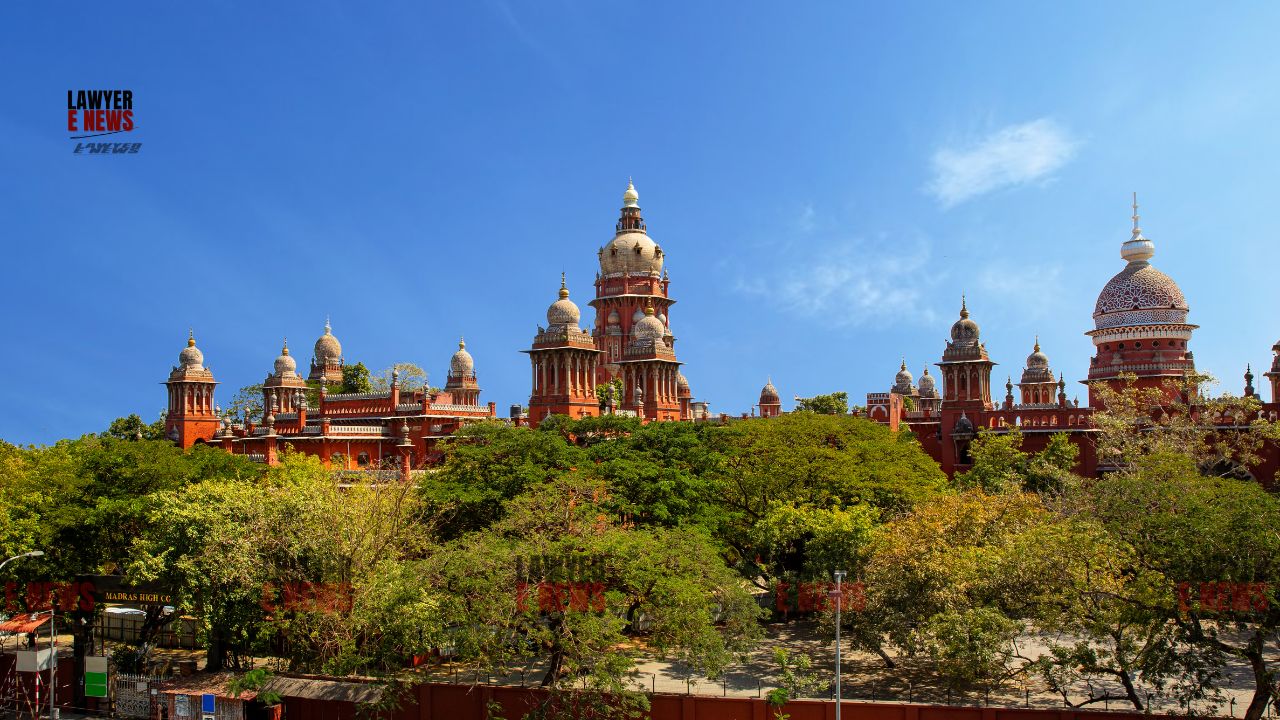-
by Admin
15 February 2026 2:36 AM



Cognizance order by Judicial Magistrate set aside due to lapses in sanction process and improper arraignment of accused.The Madras High Court has quashed the prosecution initiated against key officials of the Bombay Burmah Trading Corporation Limited in a case concerning alleged violations of the Plantations Labour Act, 1951. The court found that the prosecution was launched without proper application of mind, noting significant procedural lapses, including the failure to name the company as an accused and the inclusion of deceased and former directors.
The case arose from a complaint filed by the Assistant Commissioner of Labour (Plantations), Udhagamandalam, following an inspection on June 22, 2022. During the inspection, various deficiencies were noted in the maintenance of labor quarters, provision of potable water, and sanitation conditions at the Dunsandle Tea Estate, operated by the Bombay Burmah Trading Corporation Limited. Despite receiving responses from the company detailing efforts to rectify the issues, the Assistant Commissioner proceeded with a prosecution, which was sanctioned on September 6, 2022, and filed on August 22, 2023.
Non-Application of Mind in Sanctioning Prosecution: The court noted that the sanction for prosecution, a prerequisite for filing the complaint, was granted without proper consideration of the responses submitted by the company. The sanction order lacked references to critical documents, including the inspection report and subsequent communications, indicating a failure to apply an independent mind to the necessity of the prosecution.
“The sanction for prosecution is by non-application of mind and deserves to be rejected,” the court observed, emphasizing that the omission of crucial documents in the sanction process rendered the prosecution invalid.
Improper Arraignment of Accused: The prosecution named as accused several individuals who had ceased to be directors of the company well before the date of the inspection. Notably, two of the accused had passed away prior to the alleged violations. The court found that the prosecution of these individuals, without any specific allegations against them in their personal capacity, was unjustified.
The court remarked, "Without arraying the Company as accused, the Manager, Director, and Employers cannot be prosecuted. The petitioners cannot be prosecuted in their individual capacity, further, there are no specific averments against them for any individual act.”
Delay in Filing Complaint: The court also highlighted the delay in filing the complaint. Although the inspection occurred on June 22, 2022, and the sanction for prosecution was obtained on September 6, 2022, the complaint was not filed until August 22, 2023, well beyond the three-month limitation period stipulated by the Act.
The High Court’s decision to quash the proceedings underscores the importance of adhering to procedural safeguards in sanctioning prosecutions under labor laws. By setting aside the cognizance order, the court has reinforced the necessity for thorough and mindful application of legal requirements before initiating criminal action against corporate officials. This judgment serves as a reminder to regulatory authorities to ensure that legal processes are meticulously followed to avoid unjust prosecution.
Date of Decision: September 3, 2024
Nusli N. Wadia & Others vs. The Assistant Commissioner of Labour (Plantations), Udhagamandalam
